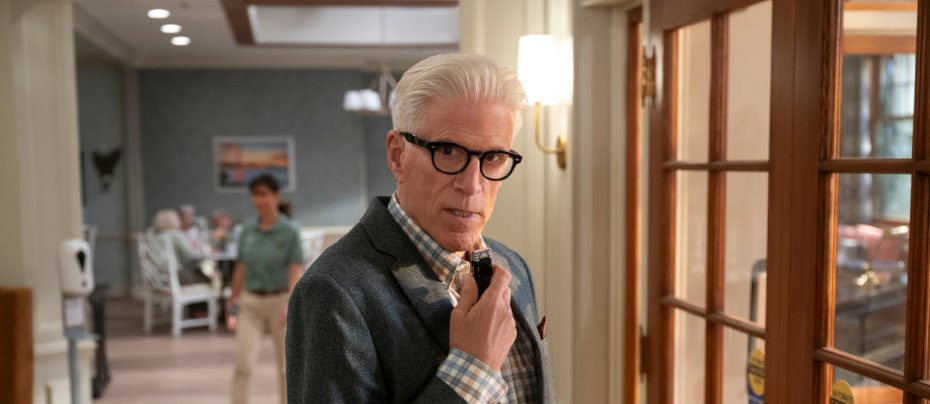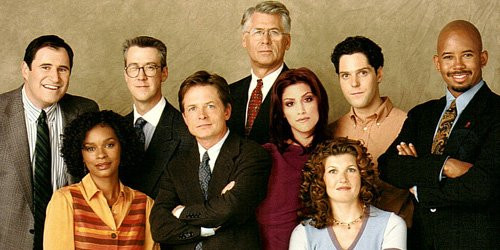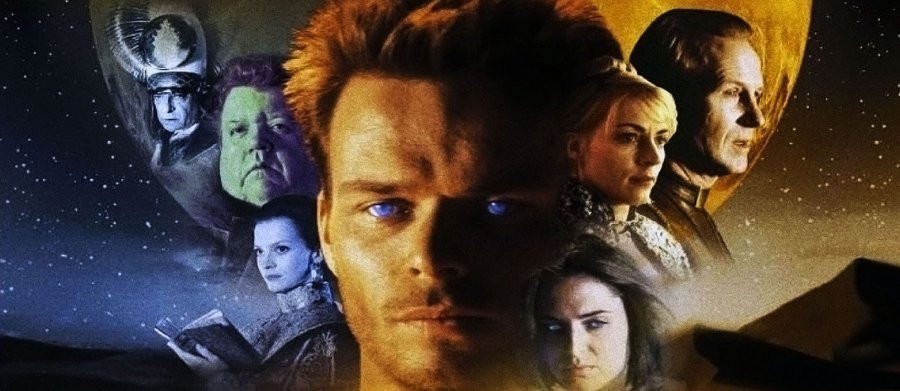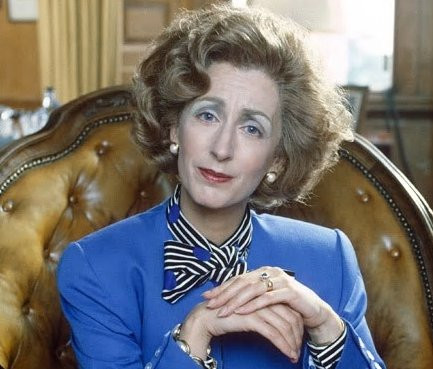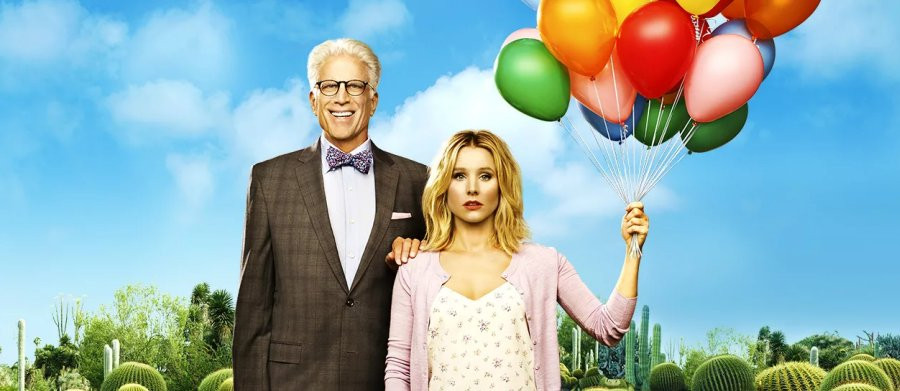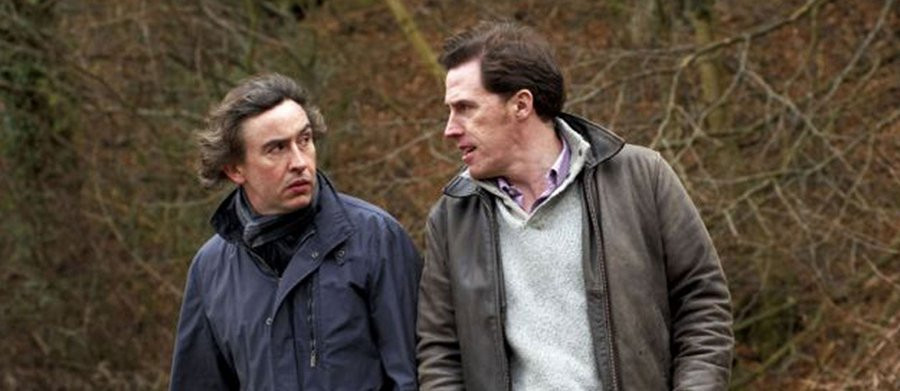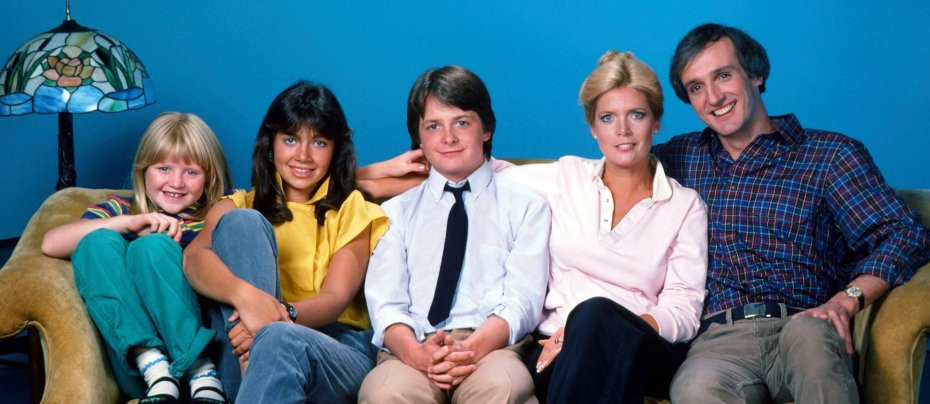
Curb Your Enthusiasm
2000 - United StatesIt’s rare enough for a writer to achieve the kind of success with a sitcom of the levels of Seinfeld, but to go on and repeat that success, arguably to even greater levels, seems almost unfair. However, that is exactly what has happened to Larry David, co-creator of Seinfeld and creator, writer and subject of the runaway success, Curb Your Enthusiasm.
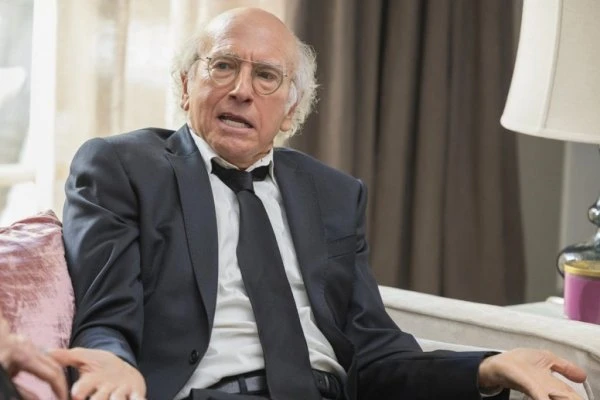
Curb Your Enthusiasm follows the misadventures of Larry, a fictionalised version of the comedy writer himself, who seems to have the idyllic life in California but who is never far away from misfortune, misunderstanding and confrontation. He has a fantastic home, a delightful wife, Cheryl (Cheryl Hines) and a very successful career built from the glorious success of Seinfeld.
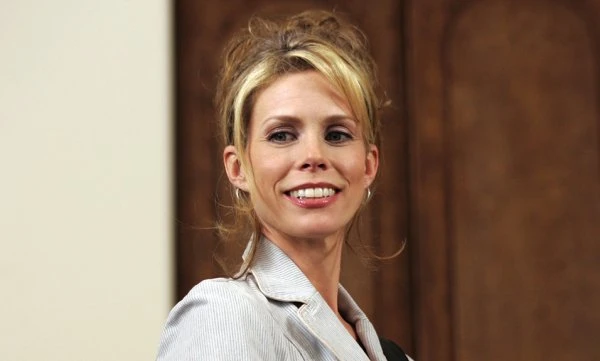
Larry has a problem with the minor irritations in life. Things like drivers parking outside of their marked space, people who say ‘agh’ after taking a gulp of their drink, or wobbly tables in a coffee shop are the kind of irritations that get under most people’s skins, but Larry is not one for letting things go. He voices his displeasure at such things immediately and forcefully, usually leading to full on confrontations.
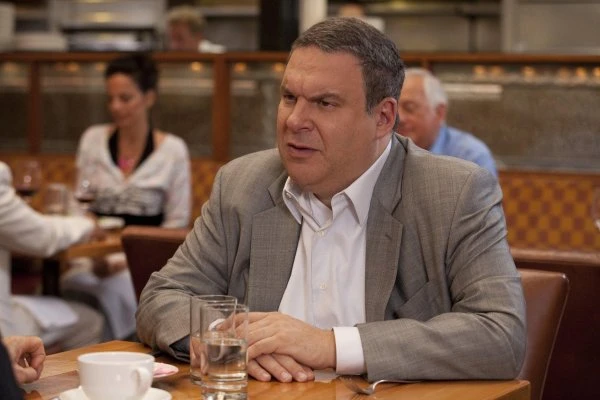
The principal main character alongside Larry in all seasons has been his manager Jeff Greene, played by Jeff Garlin, a far cry from his role as the father in wholesome nostalgia comedy The Goldbergs. While sympathising in the most part with Larry’s point of view, he is the one whose own life seems to suffer most either from having to help clean up Larry’s mess or from dealing with his angry wife Susie (Susie Greene), whose fiery temper nearly always leads to her having full on expletive-laden rows with Larry and frequently throwing him out of their home. The other regular character, arriving after season 6, is Leon Black (J B Smoove), who initially appears with his family as a sheltering scheme guest at the Davids’ home, but remains there and became an essential part of the cast with his colourful language and lifestyle.
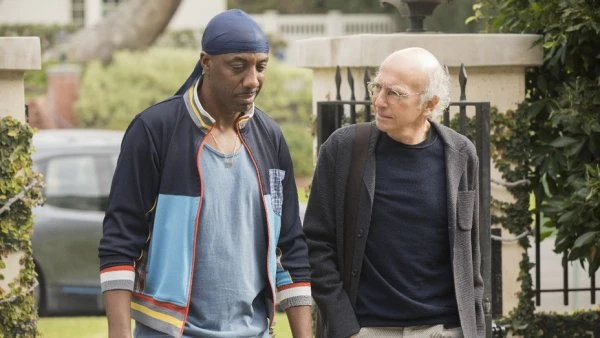
Given that this version of Larry David is still the Seinfeld co-writer, his world is shared with a host of other Hollywood stars, all depicting themselves with shameless mockery. Ted Danson is one of the most frequent guest stars to be play a fictionalised version of himself, but as with most real-name guest stars, his on screen persona can only tolerate the outspoken Larry so much before falling out with him. One particularly funny cameo was Michael J Fox, who appeared in a season eight episode in which Larry accuses him of using his Parkinsons as an excuse for harassing him, including pretending a shaken up soda was down to his illness.
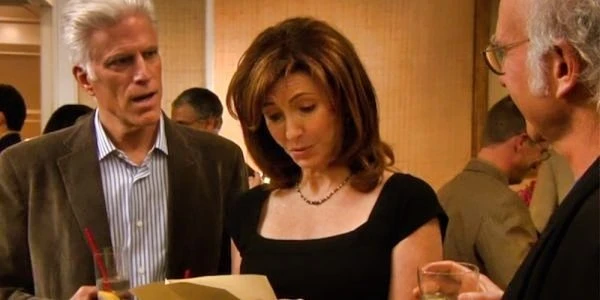
Celebrity guest stars aren’t always asked to play themselves. A number of other well-known names appear in entirely fictitious roles such as Bryan Cranston, who takes on an unenviable role as Larry’s psychiatrist, and there are cameos for Steve Coogan, Dustin Hoffman and Sacha Baron Cohen among many others. But without doubt, it’s the lengthy list of fictionalised star portrayals that make the show, really adding to the feel that this is indeed how Hollywood runs. Of particular note are Friends star David Schwimmer who appears with Mel Brooks as Larry takes one of the lead roles opposite Schwimmer in a Broadway production of Brooks’ The Producers.
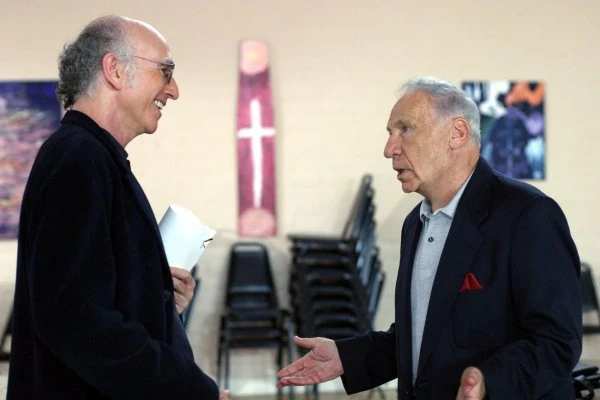
The writing is a soft touch of genius in Curb Your Enthusiasm. Each series has an over-arching storyline written by David which bubbles away in the background while each episode has its own internal story and run of scenes that are self-contained for that week. The viewer is always satisfied when the wider story comes to a neat conclusion in the season finales. These range from Larry’s aforementioned run up to appearing in The Producers, having a Fatwa declared upon him for impersonating the Ayatollah on live television (a season that includes a hysterical cameo from Salman Rushdie) and Larry opening a spite store, a coffee shop to run solely to annoy the owner of Mocha Joe’s coffee shop, where Larry fell out with Joe because of the temperature of the coffee and the quality of the scones. There’s even a season in which Larry tries to reunite the cast of Seinfeld for a television special.
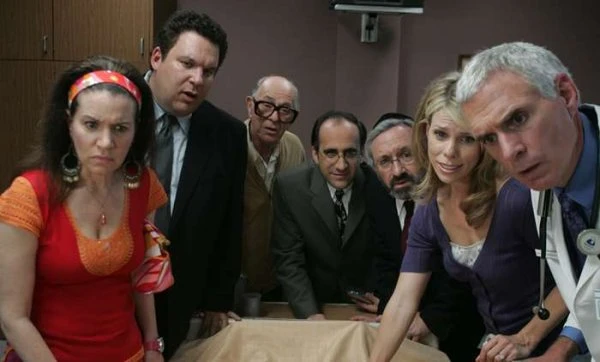
There is a wonderful improvisational feel about Curb Your Enthusiasm, and for good reason. The storyline and some key plot points are created by Larry David, but the main stars are given a mere seven page story summary, and the rest of the show’s scenarios are played out courtesy of its protagonists improvising their way through the situations. It’s testament to the skills of the cast and guests that the quality of the final product is so high. It is reported that each scene has a significant number of takes, all firing off in different directions. It’s then down to the editors to try and condense the best moments of those takes into the excellent final product, ensuring that the story hangs together well, not just for each episode but for the season long goal as well.
Such is the success of Curb Your Enthusiasm that Larry David seemingly has licence to come and go as he pleases with new seasons. A six year gap, unprecedented for a comedy of such renown, went between seasons eight and nine but its return was greeted with every bit of enthusiasm as if the show has never been away. With a multitude of awards and a seemingly ever-increasing following, it’s very difficult to curb your enthusiasm for the hysterical misadventures of Larry David.
Review by Brian Slade:
Born and raised in Dorset, Brian Slade turned his back on a twenty-five-year career in IT in order to satisfy his writing passions. After success with magazine articles and smaller biographical pieces, he published his first full-length work, `Simon Cadell: The Authorised Biography'.
Brian is a devoted fan of the comedy stars of yesteryear, citing Eric Morecambe, Ken Dodd, Harpo Marx and Dudley Moore amongst his personal favourites. He was drawn to the story of Simon Cadell through not only `Hi-de-hi!' but also `Life Without George', a programme he identified with having grown up in the Thatcher era.
Seen this show? How do you rate it?
Seen this show? How do you rate it?
Published on November 3rd, 2021. Written by Brian Slade for Television Heaven.


